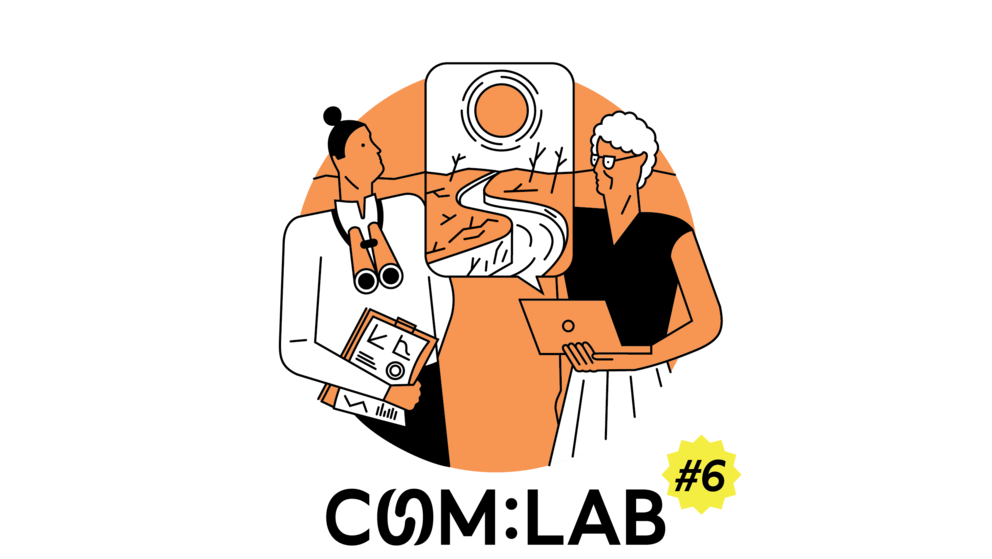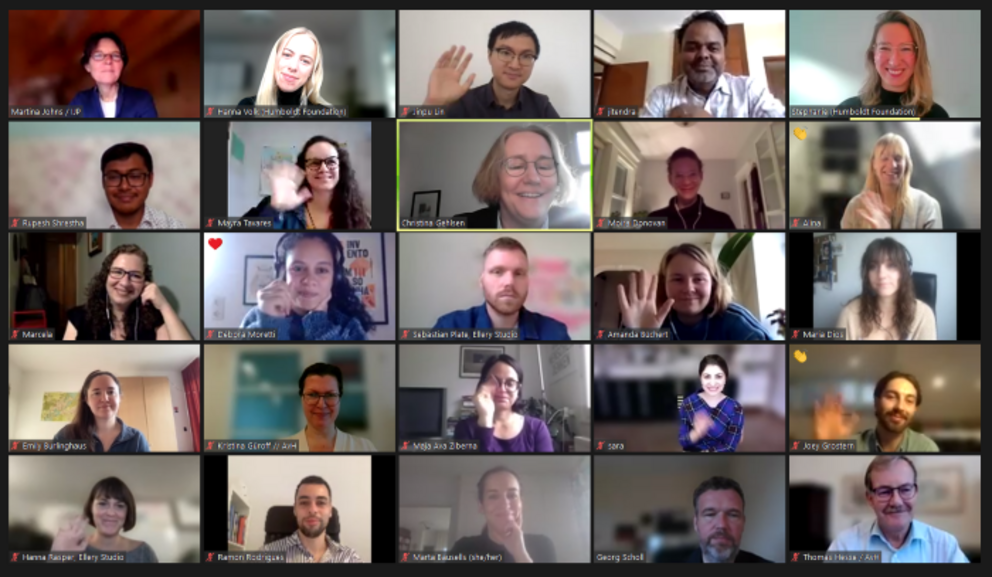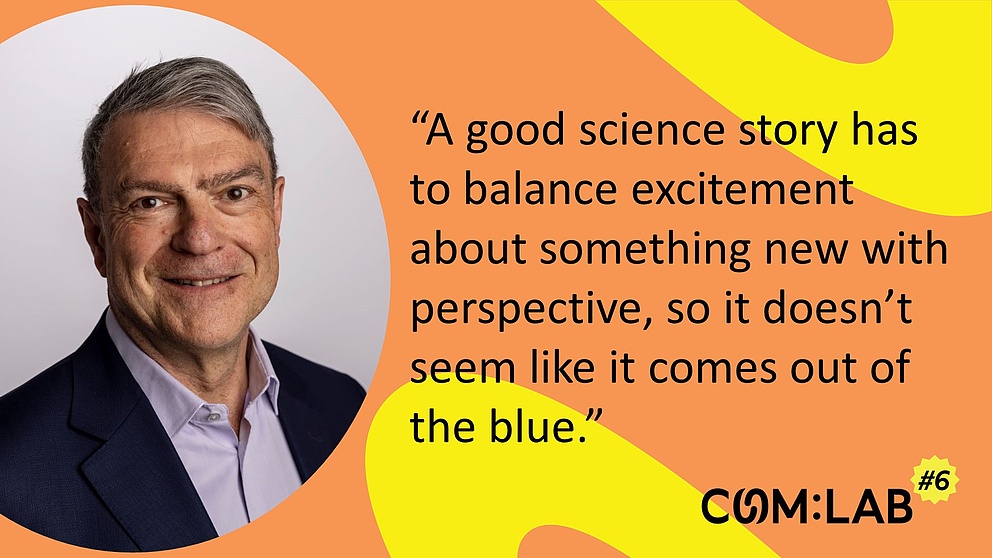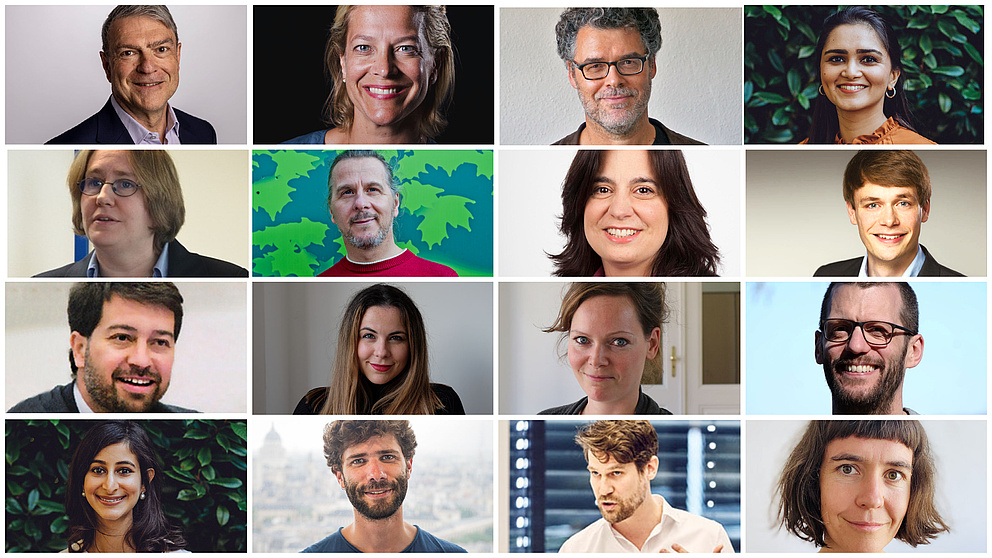

Contact
Press, Communications and Marketing
Tel.: +49 228 833-144
Fax: +49 228 833-441
presse[at]avh.de
Increasing oil and grain prices, dwindling timber and water reserves: current global political developments and climate change clearly illustrate how dependent we are on stable resources and secure trade routes. It is noticeable that today’s energy and food crises are essentially discussed at national level, although they are subject to global interdependencies and hit the poorest regions of the world particularly hard. More than ever, it is necessary to consider what alternatives we have with regard to the cultivation, use and transport of these over-used resources. What pioneering and innovative methods deriving from international research can help us to manage our planet sustainably and create fair trading conditions? How do they have to be communicated in order to reach different target groups in society? Conclusion: Especially in times of crisis, we need solution-based, encouraging, cross-border narratives and a clear focus on scientific innovations in the field of sustainable change.

Christina Gehlsen, Deputy Head of the Division for International Science Policy at the Federal Foreign Office, and Thomas Hesse, Deputy Secretary General of the Humboldt Foundation, delivered the welcome address to launch the sixth Communication Lab. Both emphasised the central role of science and journalism in tackling the current global challenges. During the four-day workshop, the ComLab#6 participants discussed the essence of good science communication with eminent experts from research, the media and civil society.
What is the state of science journalism in an increasingly complex world? Even though it has become more complicated to challenge the newly emerged echo chambers and fake news, the appetite for exciting science stories was unbroken, as Clive Cookson, science editor at the Financial Times stated. The Covid-19 pandemic and climate change had clearly illustrated the relevance of science and reporting. The sixth Communication Lab began optimistically and with a call to all the researchers and journalists present to look to the future with confidence.

Climate reporting, in particular, illustrates the field of tension, unveiled by Cookson, between the urgency of the topic and the challenges facing communication. Damian Carrington, environment editor at The Guardian, outlined developments in the field in the last ten years. Climate topics could now be found on all desks, they featured in business and political news as well as in the lifestyle and travel sections. Other topics in this session considered how uncertainty and dissent in climate research can be represented in the media, and how to handle climate change deniers.
Thorsten Wagener, hydrologist and Alexander von Humboldt Professor at the University of Potsdam talked about water as a global resource and the conflicts surrounding the topic of water supply. Water scarcity, according to Wagener, was a glocal challenge that demanded an interdisciplinary, international perspective. Hydrological models of the type constructed by Wagener and his team could prove a huge help in preventing flooding or periods of drought. The heatwave in Europe clearly showed us that climate change is not some far-off scenario. “In the last few years,” Wagener emphasised, “it became so clear to people that it is not somebody else who has the problem but that we are all in it together. I think that is the window of opportunity to use.”
This is also true of land use issues. Tobias Kümmerle, Professor of Geography at Humboldt Universität zu Berlin and Henriette Herz Scout, conducts research at the intersection of sustainable agriculture and biodiversity conservation in the endangered forests of South America. He made it clear that conscious cultivation methods, new technologies and a broadly-based dialogue with society – but especially with local landowners and farmers – offered promising openings for resource-friendly practices. Soil health was not a loss-making operation; on the contrary, people and the environment could benefit from rethinking agriculture, Kümmerle stated.
Alexandre Caldas (Head of Big Data, Science Division, UNEP) held an inspiring lecture on the significance of data and data analysis as a global resource for achieving better prediction models in climate change prevention. He emphasised the challenges involved in collecting data in the poorest, politically unstable parts of the world. In the last resort, the fight against the climate crisis meant securing peace. Caldas flagged up climate justice as a core problem for which global solutions were needed together with local structures for implementing the sustainable development goals (SDGs) on the ground.
Without comprehensive climate education there can be no change – this was the consensus reached by the experts of the Climate Competence panel. Bethany Wiggin, founding director of the Penn Program in Environmental Humanities, head of the project “My Climate Story” and host for the International Climate Protection Fellowship, Simon Klein, science officer at the Office for Climate Education, and Keya Lamba, co-founder of the organisation Earth Warriors, discussed best practices in climate communication with the ComLab participants. They also addressed the question as to how communicators, teachers and researchers could counteract growing climate angst amongst children and young people. The following were the key findings of this session:
- put the focus on positive stories;
- start climate education early;
- encourage children and young people to become actors in their own environment;
- encourage and supporte teachers to integrate and communicate climate topics in all parts of the curriculum.
It was, moreover, essential to exchange ideas globally, be aware of cultural and social differences, and develop classroom material based on the respective contexts and involving local actors.

In addition to the keynote speeches by researchers and media representatives, the participants got together in small groups to discuss country-specific aspects of resource scarcity with respect to water supply, agriculture, energy and technology. An exchange on effective methods of communicating science and potential forms of collaboration between research and the media was another aspect of the session.
Michael Wingens of Science in Dialogue presented a number of science communication formats with a special emphasis on the effect and reach of various social media platforms and their national specificities. Annegret Burkert of the Science Media Center Germany emphasised the importance of institutional support for high-quality science reporting, especially in times of information overload. Jens Radü, managing editor and head of multimedia, DER SPIEGEL, advised the participants on quality criteria for good digital and multimedia stories as well as giving them feedback on their project ideas. How precisely science journalism can contribute to democracy building was the topic discussed by Mariette DiCristina, Dean of the College of Communication at Boston University.
In the coming weeks, the participants will work together on implementing their project ideas. Pieces will be produced on
- new global alliances in the energy crisis
- water scarcity in Africa
- international examples of successful flood prevention
- the importance of resources in digital health
- communication strategies in the fight against deforestation
- innovative methods in nuclear physics for producing green energy
- cross-border approaches to sustainable agriculture
- climate justice and global supply chains of valuable raw materials
On 20 January 2023, the three best projects from the sixth Communication Lab will receive awards.
Twice a year, ten Humboldtians meet up with ten alumni of the International Journalists’ Programmes (IJP e.V.). In teams of two, they develop an innovative journalistic project. Highly qualified mentors supervise the process. The focus is on learning from one another. For additional information visit here.
The conversation with society is one of the Foundation’s key objectives. For additional information on our activities in the field of Science Communication visit here.
